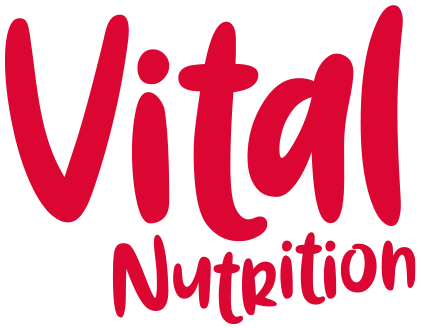Do you know your numbers?
I popped along to my local MACE store to meet the NI Chest Heart and Stroke team this week. NICHS are running a campaign to raise awareness of the fact that 1 in 2 heart attacks and strokes are linked to high blood pressure.
They are encouraging people to get their blood pressure checked and to make it easy, have teamed up with MACE stores in September and October to run a pop-up blood pressure checks across stores in Northern Ireland.
High blood pressure rarely has any symptoms. The only way to know what your blood pressure (BP) is to have it measured. It is recommended that you have your blood pressure checked at least every 5 years, however, if you are at greater risk due to factors such as a family history of high blood pressure, you may wish to get it checked more regularly.
Blood pressure is a combination of two readings. The systolic pressure (higher number) is the force at which your heart pumps blood around your body. The diastolic pressure (lower number) is the resistance to the blood flow in the blood vessels.
High blood pressure is when the readings are above 140/90mmHg and the ideal reading is between 90/60mmHg and 120/80mmHg.
There are lots of things you can do to help prevent and manage high blood pressure.
Here are some ideas to help you get a handle on your blood pressure:
Eat a Mediterranean diet
The components of a Mediterranean diet are well researched for their protective effect on our cardiovascular health. Packed with polyphenol-rich antioxidants from colourful fruit and vegetables, herbs and spices, high in healthy fats like oily fish, nuts, seeds and olive oil and rich in wholegrains, the Mediterranean diet is a tasty way to eat for heart health and manage blood pressure.
Here are some ideas to get you started:
eat more than five portions of fruit and vegetables and focus on variety and colour
pop some extra herbs into your cooking
switch your white or refined grains to wholegrains
add some extra pulses like lentils, beans or peas into your soups or one-pot dinners
use olive oil for cooking, dressings and drizzles
get in the habit of eating oily fish 2 x week
add some unsalted nuts and seeds to your daily diet
2. Keep an eye on salt
Eating too much salt has been linked with high blood pressure. Cut your need to add too much salt by increasing the flavour in foods with culinary herbs and spices, choosing low salt stock cubes and keeping an eye on for labels.
Know your labels. High salt is more than 1.5g salt per 100g and low salt is 0.3g salt or less per 100g
3. Rethink your drinks
Caffeine, alcohol and fizzy drinks are not a good idea if your blood pressure is high.
The NHS says that drinking more than 4 cups of coffee a day may increase your blood pressure.
Alcohol can increase blood pressure, so keep an eye on your intake and keep within your weekly limits.
4. Address the stress
The fight or flight response triggers an increase in blood pressure. If we live with prolonged stress, our blood pressure will stay higher for longer.
Do what you can to offload stress? Do things that you enjoy, get creative, do things that make you laugh and allow yourself the time to rest and relax properly.
5. Exercise
One of the best ways to making high blood pressure is to get your daily dose of regular exercise. It is recommended that we take 150 minutes of exercise a week and combine cardiovascular activities like walking, jogging, swimming with weight bearing exercises like strength training, Pilates or lifting weights.
I am happy to report that my blood pressure is within normal range. I’ll be keeping an eye on my healthy fats, cutting back on coffee and eating a Mediterranean diet to help its stay that way.
If you want to get booked in for your free blood pressure check at a pop up near you, then visit the NICHS website here to find your nearest MACE store that is participating.
This blog post first appeared as my column in The Irish News on Saturday 1st October 2022.

